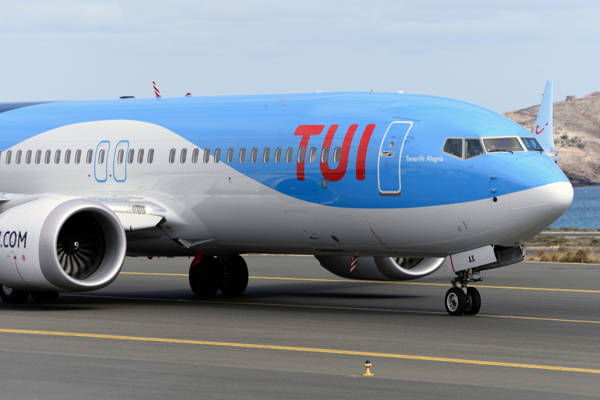Tui reports dip in bookings due to flight disruption
System ‘remains fragile’ but airline ‘confident about winter’

Disruption to flights in May and June caused a significant dip in Tui’s summer bookings and the system “remains fragile”, the group has reported.
Tui was forced to cancel “roughly” 200 flights in May and June – “mainly at Manchester airport” – and the group’s incoming chief executive Sebastian Ebel acknowledged: “We had a booking dip.”
Ebel reported bookings fell from a rate of 120% of summer 2019 levels before “all the disruption was in the press” to 85%.
Now, he said: “We are at 100% of the 2019 level when the market is at 90%.”
Tui put the costs of disruption in the three months to June at €75 million but said this did not account for lost bookings.
Ebel said: “We had significant challenges, especially on the UK side. Some of the infrastructure collapsed. It was not Tui, it was the airport. The workforce was not there.”
He reported: “The second-biggest disruption was at Amsterdam, and Amsterdam still has significant disruption. But in the UK, the shortage of labour was more severe.”
Ebel added: “July was still difficult. Disruptions were on a lower but still significant level. It has normalised the last few days, but the system is still fragile.
“We have days when there is no disruption and days when there is significant disruption.”
He insisted: “The main problem was not the airline, it was the infrastructure provider.”
Ebel added: “We are back to normal in the last 14 days. Now we are back to 100% [of the 2019 bookings level].”
But he said: “This quarter has a higher number of passengers so even if there is a lower amount of disruption it can affect more passengers.”
Tui noted the cancellations amounted to “less than 1% of the entire summer programme” and Ebel reported: “More than 96% of people had an on-time performance.”
However, this figure includes flight delays of up to three hours and the UK rate was “probably 2% lower”.
Yet Ebel argued: “We’re confident about the winter. [Passenger] volumes are significantly lower in winter and we have taken multiple actions.
“We invested in standby aircraft. We have a record number of wet lease aircraft [with crew] and we have recruited more staff.”
Asked whether Tui regretted reducing the size of its aircraft fleet, Ebel said: “If we had the fleet capacity of before we would be heavily loss making.
“The disruption came from [airport] security, from baggage handling, from airspace not from the number of aircraft we have.”
Tui reported a loss of €331 million for the three months to June and a loss for the year to date of almost €1.08 billion.
However, the company reported it would have made an underlying operating profit in the April-to-June quarter but for the costs of disruption to its flying.
The group forecast a profitable fourth quarter with bookings for July and August at 93% of the 2019 level and prices 20% higher.
Ebel is due to take over from outgoing group chief executive Fritz Joussen at the end of September.

 FrankLin
FrankLin 
























.jpg)







